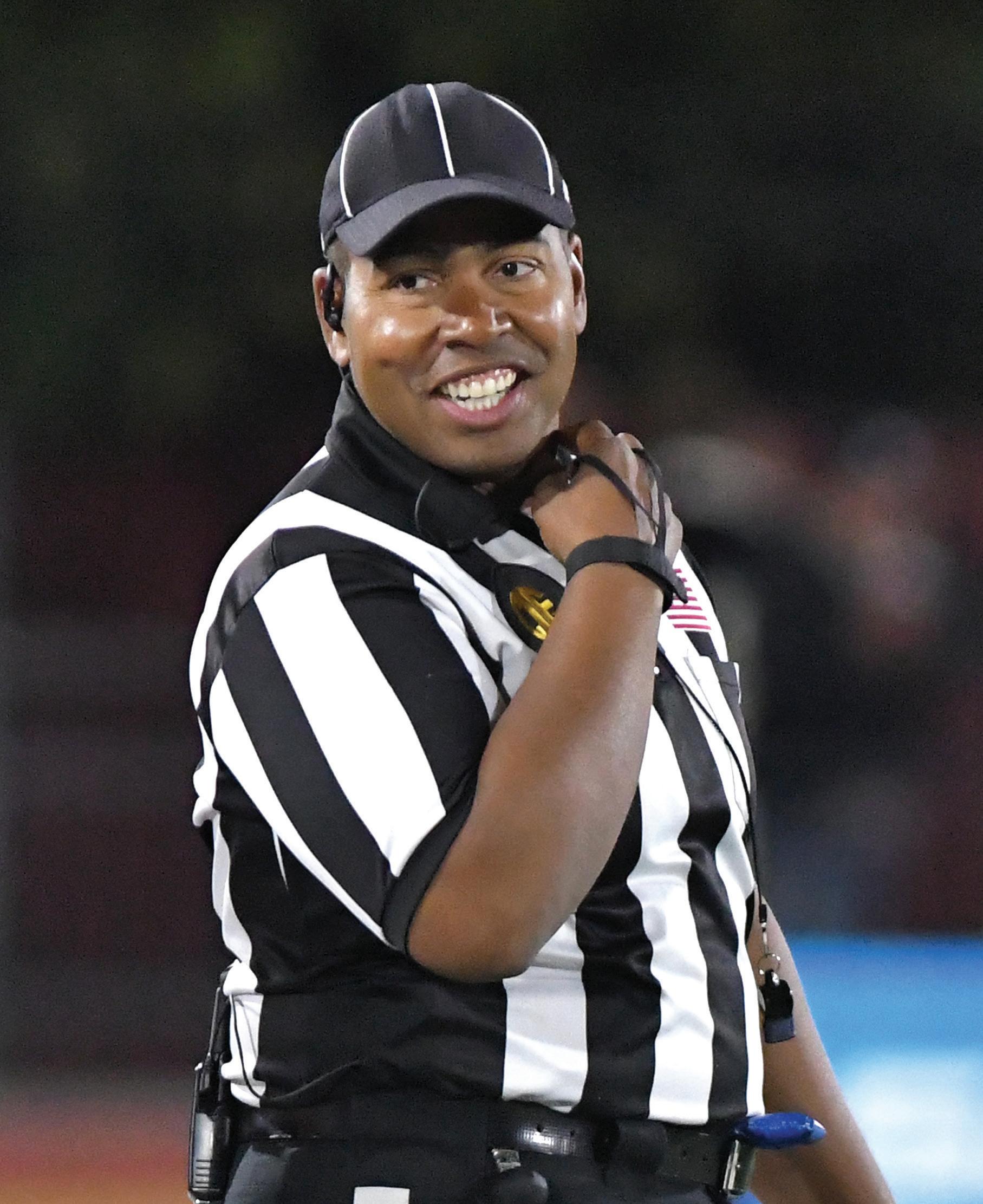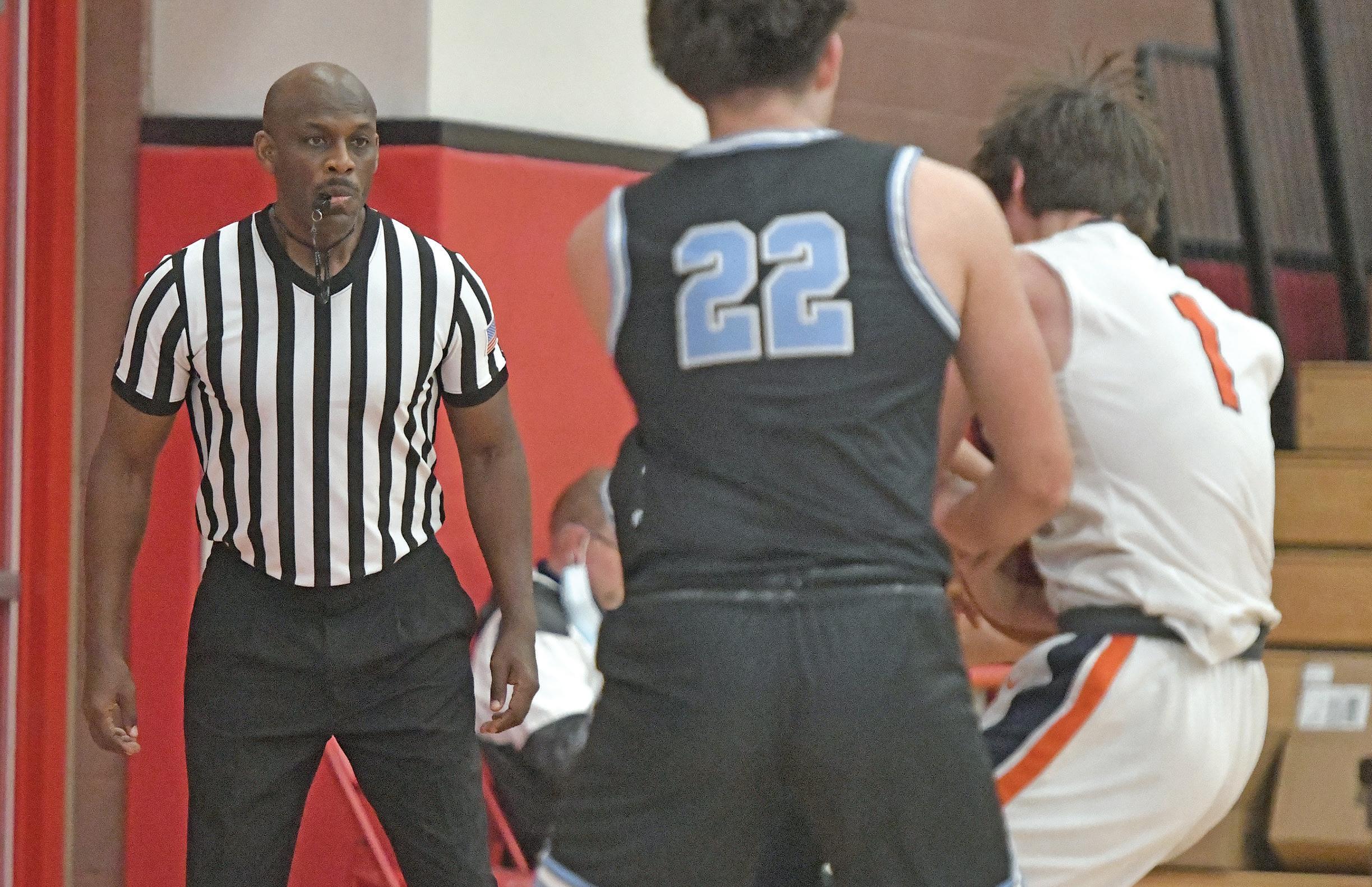
11 minute read
GIVE ME FIVE
GIVE ME
Ancient wisdom from a Roman emperor and philsopher provides smart guidance to modern-day officials.
By Martin W. Spencer
EEach morning before work, I grab a cup of coffee and read something. That habit led me to a passage in The Daily Stoic titled, “Some Simple Rules.” And that passage led to some ancient wisdom that I found quite relevant to my officiating.
In the passage, authors Ryan Holiday and Stephen Hanselman cite five rules identified by Marcus Aurelius in his Meditations, 8.51. Aurelius says, “In your actions, don’t procrastinate. In your conversations, don’t confuse. In your thoughts, don’t wander. In your soul, don’t be passive or aggressive. In your life, don’t be all about business.”
Rephrased, the five simple rules are: 1.Do not procrastinate. 2.Do not be passive or aggressive. 3.Do not confuse others in conversation. 4.Do not allow your thoughts to wander. 5.Do not be all business.
These rules resonated with me as I reflected upon a past officiating season. It amazes me how five simple rules developed by a Roman emperor and Stoic philosopher thousands of years ago apply to officiating and life today. Let’s take a closer look at how these five simple rules relate to officiating and how they offer a path to improvement and continued excellence.
WWe may think of procrastination as putting something off until the last minute or apathetically waiting to complete an undesirable task. It’s like when we were in college and waited until the night before to cram for an exam or putting off that work assignment or home improvement project until it is urgently due. Think of procrastination in relation to our call selectivity in a game. The points of emphasis (POEs) are emphasized for a reason.
What happens in a basketball game when we allow defenders to reroute ballhandlers all the way up the court or if we allow post displacement and/or ward-offs?
In football, if we don’t enforce the sportsmanship POE and allow taunting, we risk losing control of the game later.
Instead of procrastinating on these types of plays and situations, we must take care of business from the very beginning. This doesn’t mean officials should be overly strict in enforcement. There’s no substitute for good judgment. Good officials know the difference between plays that should get a flag and those where there wasn’t enough to warrant enforcement.
But procrastinating on calling rough play can lead to more rough play, which makes it extremely difficult for officials to control the game.
When it comes to management of players and benches, do we procrastinate or do we address unsporting conduct early? If a competitive matchup exists and players are trash-talking, we must address this early instead of thinking the trash talk will fizzle out on its own. You can verbally communicate a “problem matchup” with your partners so everyone in the game knows the crew is aware of the matchup. Taunting is not an infraction that requires a warning. As soon as it occurs, it must be addressed, because otherwise it will escalate. Depending on the sport, do we allow bench personnel to consistently stand? Do we allow head coaches to comment on each play or disregard the coaching box? Or do we firmly, but fairly, address the behavior? Al Battista, longtime official, mentor and current NBA scout, has said officials cannot have the attribute of avoidance. This leads to the next simple rule.
DO NOT PROCRASTINATE
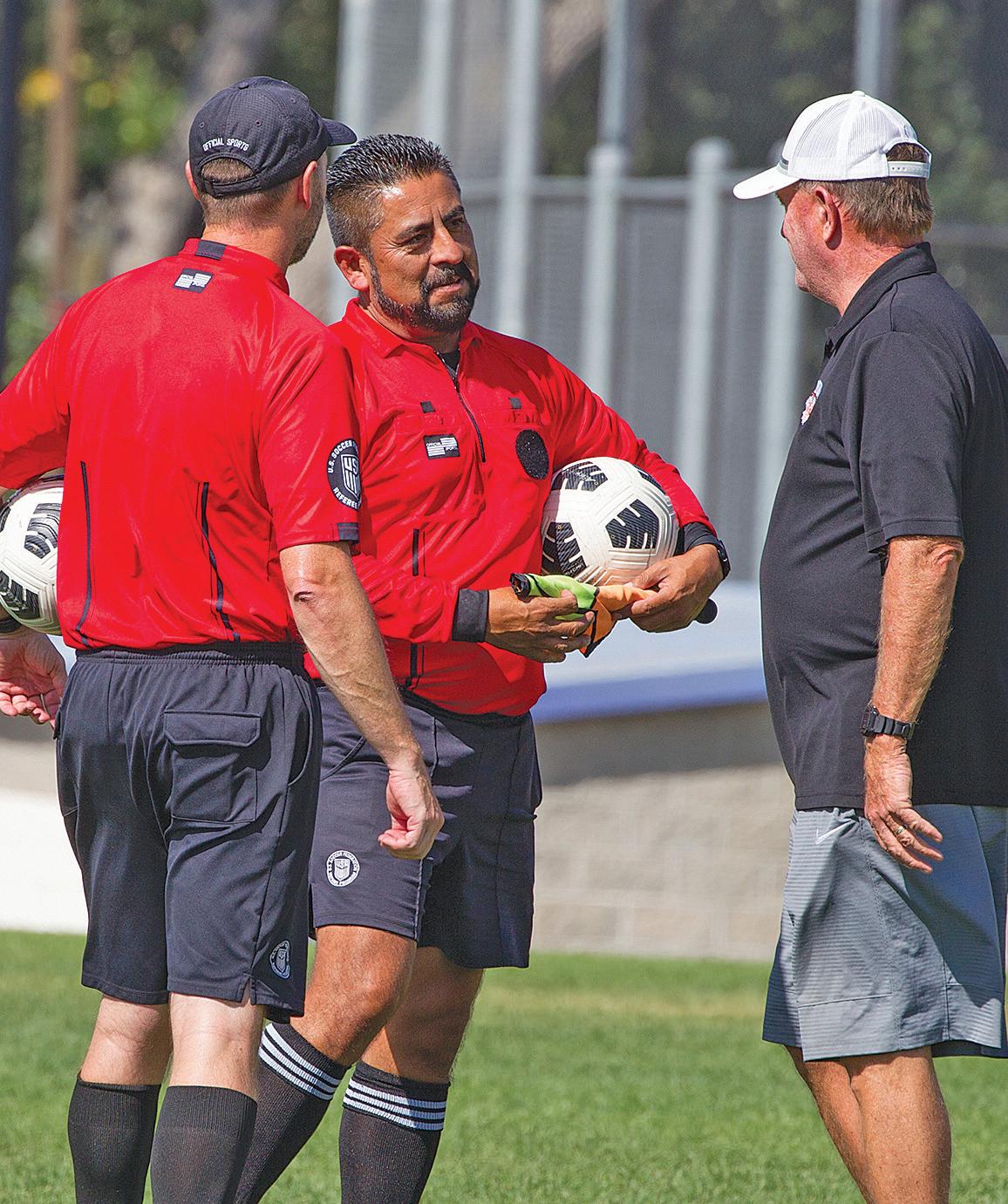
TThe information in the previous section does not suggest we immediately administer technical fouls or assess other rulebook-outlined penalties as a reprimand or form of punishment. But when a coach or player breaks our concentration, we must address this behavior instead of ignoring it. This does not require us to act as drill sergeants. We can respond to reasonable questions without raising our voice or using sarcasm. Look the individual in the eye and use a calm, neutral tone. This defuses situations. If a coach or player excessively complains on each possession or play, we can professionally remind the coach or player he or she must allow us to referee. Keep hands at waist level if using hand signals as a defusing technique. We should not give an emphatic stop sign directly in an individual’s face. If we provide a warning, the coach or player must know the next infraction will result in the appropriate penalty and then we must have the courage to assess the proper penalty thereafter. It is important for everyone involved in a game to understand technical fouls or penalty assessments are not personal. These are rules in the rulebook.
After we assess a penalty or administer a technical foul, do we then become passive and fail to call the rules as written? Envision this scenario: We just assessed a technical foul to the head coach of team A for excessive complaining, so the next trip down the court we no-call an obvious foul against team A to appease the coach to whom we just gave the technical. All this does is reinforce the coach’s belief coercing us will get the calls or non-calls he or she wants. What do we think this says to the other coach? The coach of team B may believe he or she must complain to receive favorable calls or no-calls. Now you may have both coaches engaging in unwanted behavior instead of just one.
Officials must build rapport to avoid communicating passively or aggressively. Ed T. Rush Sr., former NBA referee and supervisor of officials and co-founder of Court Club Elite, reminds officials to find the voice of reason. If we can find a player on a team with whom we have built or can build a rapport, it can help our games. Ask the voice of reason to positively influence his or her aggressive teammates during intense situations. Also remember we can speak to players in positive terms. We don’t always have to tell players to “stop” doing something. For example, if a football player helps an opponent off the ground, we can commend the gesture.
Aggressive behavior in officials often comes from feeling defensive. We may miss a play, which brings doubt into our minds. When we receive push back, our natural reaction is to immediately and defensively respond because we don’t want to be wrong. Remember, we can admit a mistake to a coach or player. It humanizes us and helps us build rapport. In other situations, we can find something to agree on with a coach or player. For example, “You’re right, coach, the pitch hit the batter. But the batter swung, so it’s a strike.”
Never undermine the importance of listening. If we can listen first, without interrupting or thinking about what to say next, we can then respond with empathy, improving our communication with coaches and players.
IIn his book the 7 Habits of Highly Effective People Stephen R. Covey discusses empathic listening, , which encourages people to seek to understand and then seek to be understood. If we truly listen with the intent to understand a coach or player’s perspective, we can respond more effectively. When we engage in dialogue, we must not confuse coaches or players. This is when rules knowledge becomes paramount. How can we expect coaches and players to trust us if we spew out confusing verbiage? Once we empathically listen, we must respond using clear and concise rulebook terminology.
In softball, a coach might make an inquiry like, “How can that not be a catch? She had it in her glove for three seconds before it dropped out.” An umpire can respond: “Coach, the initial action of the catch had not been completed and she did not demonstrate secure possession and intentional and voluntary release.” A basketball coach may ask, “Why is that a travel?” A good response might be, “Coach, your player lifted the pivot foot before releasing the ball to start the dribble.” Speak in your sport’s terms — a language DO NOT BE PASSIVE OR AGGRESSIVE coaches, players and officials all understand. These are only a few examples of many, but the rule of thumb is to use rulebook language, because it becomes more difficult to question or challenge rule-based responses. If we try to argue our point by making things up or trying to justify a clearly incorrect call, we lose trust and we lose credibility. Again, if we are wrong, we can admit a mistake.
DO NOT CONFUSE OTHERS IN CONVERSATION
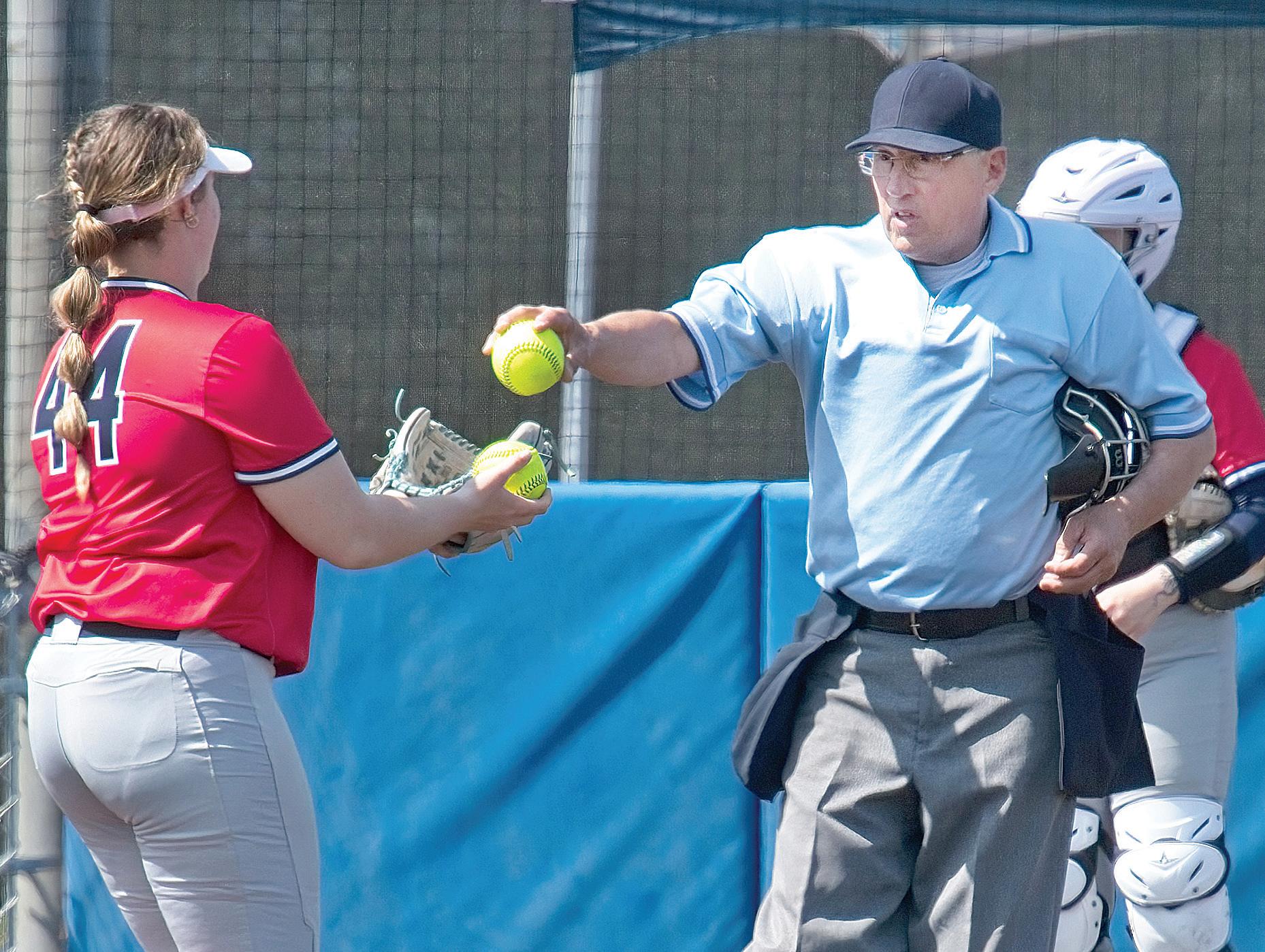
DO NOT ALLOW YOUR THOUGHTS TO WANDER DO NOT BE ALL BUSINESS
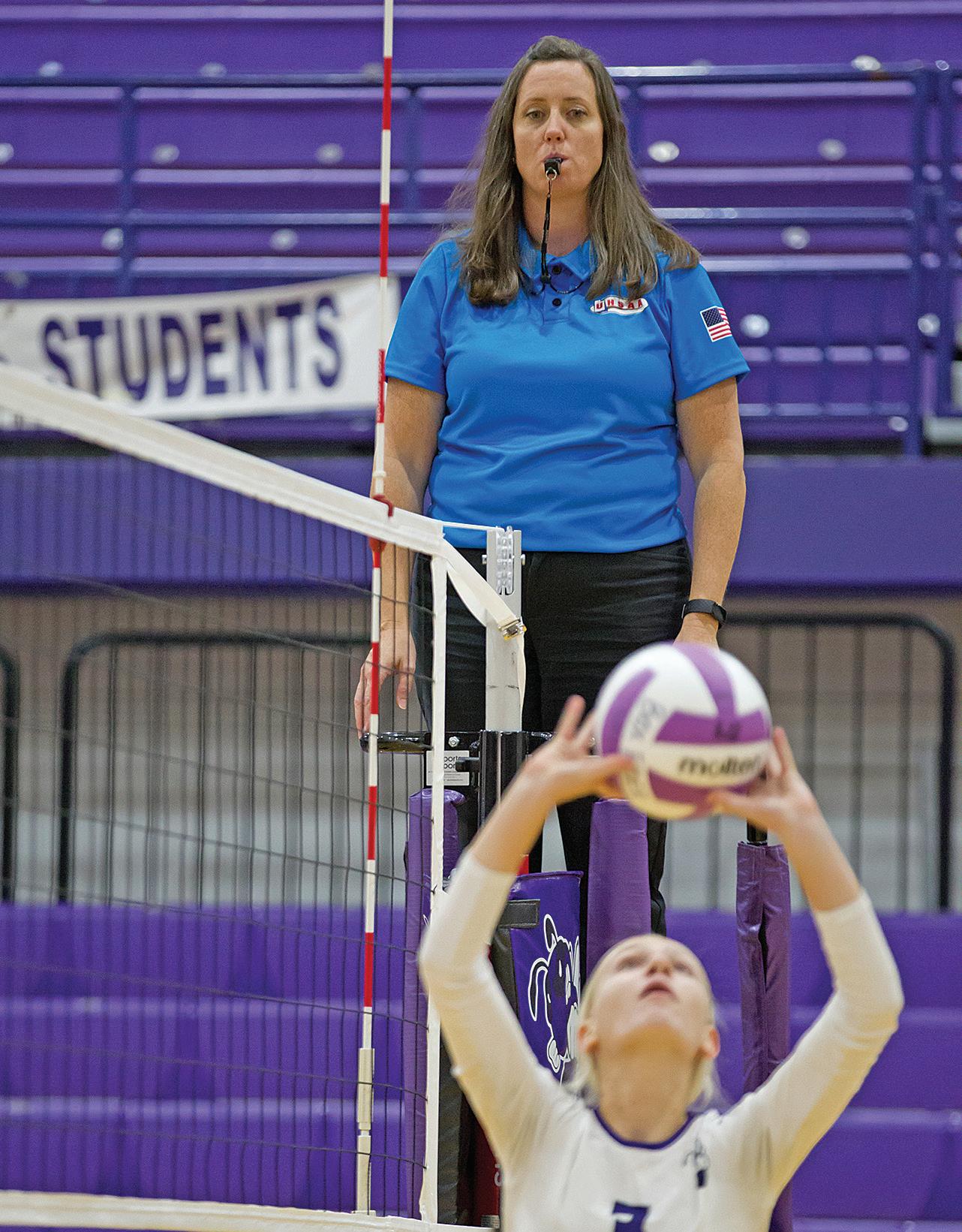
IImagine how much better we would be if our thoughts never wandered. Over the years I have come to realize how much more of officiating is mental than physical. So many times I have been in the proper position, looking in the right spot and I have still missed an obvious play. Maybe I was thinking about the dinner I wanted after the game or what I dealt with at work earlier in the day. I could have been thinking about the message I received on my phone earlier. Why do we miss plays when we’re in the right position, our eyes are in the right spot and we have accurate knowledge of the rules? A lack of focus or concentration is the answer. We must bring focus, awareness, concentration and energy/effort to literally every play. So how do we keep focus and concentration instead of allowing our thoughts to wander? While I am certainly no mental-training expert, some strategies I learned may help officials.
We can self-talk. This self-talk must be positive, present and process driven, according to Brian Cain in his book The Daily Dominator. What does positivepresent-process mean? Instead of, “Wow that was awful how I just kicked that play,” acknowledge you missed the play, but self-talk, “Next possession. Referee this primary defender all the way to the basket from trail.” Or, “Reset. Let’s focus on tracking this next pitch all the way into the glove.”
You can say to yourself, “I am a really good official during end-of-game scenarios, because I’ve prepared myself for them.” When we continue to think about the plays we missed into the next possession, pitch or play, it has a snowball effect and we miss more plays. Another mantra to use is “recognize, release, re-focus,” which also came from Cain’s book. When we can recognize we made a mistake, we then let go of the mistake, then focus on the next play at hand.
Another strategy is to officiate in segments and find physical points in the arena, gymnasium or field to help reset. The segments can be as big as taking the next few minutes on the clock or the next inning or as small as the next snap, trip down the court or next pitch. To reset, pick a point that helps you regain your focus. In soccer, look at a corner flag; in baseball or softball, the top of the foul pole; in football, the down box — it can be anything that works for you. Briefly look at that item and take a deep breath to prepare for that next segment.
Breathing seems simple, but it can be overlooked even though it is such a vital tool to help us stay focused. Whenever we feel like the game is moving too fast, we are losing focus or external factors are distracting us, it helps to take a deep breath. Pay attention to the inhale and exhale. This puts us in the present moment in preparation for the next play.
OOfficials may receive criticism that they look unapproachable, need to communicate or need to show personality. This type of criticism certainly has value, but I do not believe most officials are truly unapproachable, do not want to communicate or do not enjoy the craft. I believe this criticism stems from officials’ desire to be right as often as possible and service the game or match the best they can. What we must constantly remind ourselves is perfection in officiating and in life is unattainable. We must strive for perfection but accept excellence with the understanding we will never call every play correctly. We must remind ourselves the game comes first, the crew comes second and ourselves last. Family, friends and career come before officiating. We must also remind ourselves to have fun with the craft and smile. Otherwise, why would we all commit the time, effort and energy so many of us give to this endeavor? Many of us desire to become top-level officials, but too often with the primary focus on reaching a certain status or officiating a certain game. These goals involve aspects out of our control and prioritize an outcome focus. Process goals keep us humble and allow us to focus on what we can control. Officials should enjoy the process of rules study, video breakdown, proper fitness, proper nutrition and the games we officiate. But we should also enjoy our interactions with players, coaches and school personnel. Most importantly, we must remember to enjoy the journey and the camaraderie with our brothers and sisters in officiating. DO NOT ALLOW YOUR THOUGHTS TO WANDER Martin W. Spencer lives in Coatesville, Pa. He officiates high school and collegiate basketball.
HESTON QUAN (AMOS WELLINGTON , PALMDALE, CALIF.) DO NOT BE ALL BUSINESS
